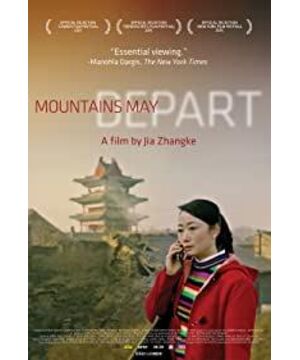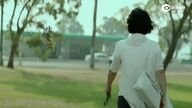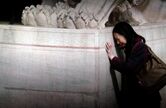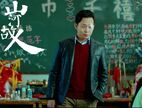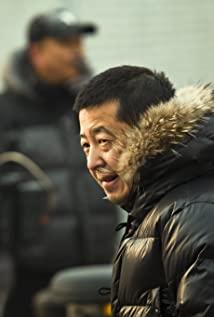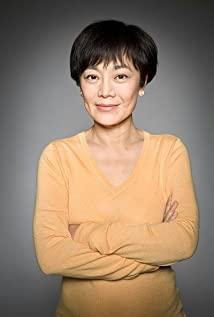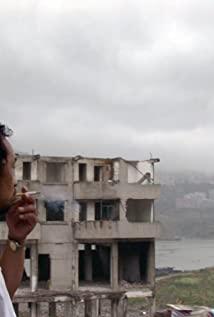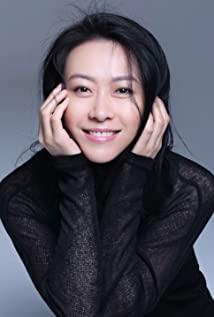The bad news is that Chief Jia, who no longer sells realism, can't even shoot a bloody love triangle.
If Jia Zhangke's famous "Face-to-face view of the Chinese people at the bottom of the march" is a handful of green onions, then this film, which is forced to be structured into three sections, is like sprinkling a handful of green onions on a three-layer cake produced in Fenyang.
The Chinese audience thought it was tofu mixed with shallots, but in fact the inside was the original foreign trade order that was exported overseas. In the tangled green onion cake, the foreigners chewed a sympathetic taste of orientalism, and then they cried.
I originally thought that the last aggressive "Apocalypse" used the spectacle effect of sympathy and compassion to shape Jia Zhangke's rotten extreme. Unexpectedly, the blunt and hypocritical "Chinese elements" in this film completely degenerated into a kind of flattery, so the weak and artificial main story was highlighted, and the instability of the bottom plate was fully exposed.
Story 1: Disaster
Story 1 tells a story of a dog-blood love triangle that happened in Fenyang, which was shot like a disaster.
Shen Tao, played by Zhao Tao, is definitely the most hated female character this year. When two men are fighting for her, their emotions are always the expression of "God, my mother, what should I do." I guess middle-aged Liu Yifei is probably this kind of virtue. And Sister Zhao's acting as a girl is not as good as that of Grandma Liu Xiaoqing. In Sister Zhao's dictionary, it seems that a girl is equal to "staring". Zhao Tao's acting skills can almost be described as a disaster. end credits.
The popular structure of an eight o'clock mother-in-law drama is completely out of control in this paragraph, the characters' behavior lacks basic logic, and they fall into a deliberate blank. The three of them were fine in the previous frame, and Zhang Yi in the next frame began to speak harshly to Liang Zi for no reason. Then Zhao Tao had no idea what the so-called choice was, and could only solve it by hitting his head in a daze. In the end, the two of them went to the river to blow up a mine, as if they were immediately metaphorical, advanced.
In the context in which Jia Zhangke is best at, the crude poetic quality of his early works has completely disappeared, turning into mediocrity and far-fetchedness. It seems that Chief Jia, whose footage has been shortened, has also been dispelled. Whether it is at the end of "Xiao Wu", Xiao Wu is in the police station, and the news of Xiao Wu's arrest is broadcast on TV; or in "Ren Xiaoyao", the long shot of riding a motorcycle through the streets and alleys of the county at the beginning; In the early work "Home from the Hill", the female passer-by who has been lingering in my mind for a long time, wearing tawdry clothes, waiting for people in front of the bus stop, with curiosity about the camera on her face, everything is so natural and sincere .
In fact, what Jia Zhangke is most criticized for seems to be the display of the so-called Chinese reality, which has a tendency to please the West. However, for its endless aftertaste rooted in roughness, it seems that we can ignore his motives and recognize his excellence; It is a sale, and it does not hinder the excellence of its early works. Although Jia's weak ability to direct actors is very obvious in all works (this problem is extremely magnified in "The Twenty-Four Cities", in the confrontation between professional actors and amateurs), Jia Zhangke's opportunistic era is very big. The background has never existed apart from the characters. Even in the period when he began to abuse metaphors, the tightrope walker and the launching bridge in "The Good Man in Three Gorges" also served as a foil for the story and characters, icing on the cake.
However, in the first paragraph of the film, the characters and the so-called realism elements are completely out of touch. About ten minutes into the film, there are local scenes full of sensational music and slow shutter smears, which left me at a loss. The abused "reality element", with a false and sincere show, is completely unable to hold up this failed love triangle story.
Story 3: Catastrophe
After reading Story 2, I thought Jia Zhangke had regained his luck, but I was wrong.
The third paragraph of the old and young match is completely outside the existence of the whole film. Zhang Yi suddenly changed from a VC dog to a community man and his son can't speak a word of Chinese. The story of a boy growing up was shot to pieces by Jia Zhangke, full of strange misunderstandings of Western culture. Jia Zhangke uses the consistent logic of "Chinese people must be like this" to explain the story of "Westerners should be like this", trying to interpret a "universal" and time-related cultural conflict from the separation and lack of connection between China and the West. Yes, sentimentality about what is right and wrong.
However, it perfectly deduces what is a master of the eye.
No matter how beautiful the scenery is, it can't save the fragile characters' motives. Tole and his dad had an inexplicable quarrel, and then he and Zhang Aijia drove for a while, took a helicopter for a while, then they were fine, and then they decided He went back to China to find Le Damn, and then he didn't go there for no reason. Then, when Zhao Tao heard the call of Bo Tao's interstellar travel, he began to dance in the square.
When Zhang Aijia and Dale met, I thought it would be fun for the two of them to be together, and then I fucked, they were really together! Although the direction of the story coincides with the author's escaping interest. But the clues of this far-fetched Oedipus complex really can't convince me of Zhang Daole's reincarnation of Oedipus. It is also a match between young and old. Ang Lee has played the quality of an ethical master in "Food Men and Women", but because Mao was under Jia Zhangke's hands, it became so salty and wet.
This paragraph was originally intended as a rocket to lift the whole film to a new height of universal sentiment in the whole universe, but unfortunately the director did not have enough fuel, so he flew out of orbit halfway, and there was a big explosion. This paragraph seems to be almost a child's play away from the previous two stories. Whether it is texture or core, it is like an outing team of primary school students who have gone astray. As an international director, Jia Zhangke reluctantly calls himself the act of challenging himself almost foolishly, completely detached from his own good at framing. It seems like a student doing homework, eager to prove that he can master emerging themes.
When it comes to the seemingly high-end three-stage structure of this film, it has actually been broken for a long time. In the 21st century, Quentin has begun to tell stories honestly and without slickness, but Chief Jia seems to have just watched "Rashomon" yesterday. He was so excited that he concocted such a structuralist framework. It can be seen that Jia Zhangke has been trying to move closer to Yang Dechang from "Legend of the Sea", but unfortunately Jia Zhangke's experience and ability are completely unable to control the complex world, let alone the ability to hide ingenuity, so he is eager to construct a full structure, But there are craftsman-like pretentiousness piled up everywhere.
To add, I won’t repeat the blunt and inexplicable metaphors in this film. What I can’t bear the most is the 4:3; 16:9; Childish than the heart symbolizing love.
Story 2: The daily life of middle age In
that year, Xiao Jia entered middle age and began to have the anxiety that ordinary people should have.
The second story can be said to be the only part of the film that can be seen. When a person reaches middle age, his former playmate suffers from a terminal illness and comes to borrow money in embarrassment; he divorces and lives alone, his son is awarded to his ex-husband and calls another woman his mother; his father is old and has to face life and death. In this passage, Jia Zhangke seems to express his own anxiety to the audience. Although this kind of talk is reserved in order to take into account the expectations of the whole film. But the real anxiety can always move people's hearts. When I was watching this part, I even thought, how good it would be if this part could be turned into a one-step feature film.
Everywhere is full of details, whether it is Zhao Tao seeing his old friend, finding a wedding invitation from many years ago, or the conflict between the city represented by his son who returned from international school and the country represented by Zhao Tao, and the reluctance of a mother to her son, All outline the helplessness and embarrassment of life, and everything is so vivid. And Zhao Tao, as a not-so-excellent actor, finally found a state in a paragraph that suits his age and experience, but Chief Jia, who has always been restrained, why did he give so many crying scenes, close-ups... Stacked emotions, in Excessive bursts appear especially cheap. When the typical Jia Zhangke-style funeral panorama appeared, Zhao Tao once again got an annoying magic power.
It seems that Jia Zhangke can only always control the world under his own experience, and he can only control the experience of the moment. The young Jia of the county town shoots well the young Jia of the county town, and the old Jia of the middle-aged uncle can speak the old Jia of the middle-aged uncle. But Lao Jia, a middle-aged uncle, forgot about Xiao Jia in the period of Diaosi, but he still has to talk a lot, and use the guessed old Lao Lao Jia to structure and connect, trying to create a cosmic Jia.
Then of course it crumbled because of weak foundations.
In that year, Xiao Jia walked out of the county and entered the literary and art circle, playing with Chen Danqing and the others, immersing himself in the circle of contemporary art and cultural people; occasionally writing books, working with Martin Scorsese & Marco · Muller flirted with him, Hou Hsiao-hsien also played with him, and Ang Lee's affectionate dog Han Han also came to play with him; so as a cultural person and artist, Jia Zhangke shot his own lousy milestone - "Old People in Mountains and Rivers".
Alas! Art really kills people!
View more about Mountains May Depart reviews


